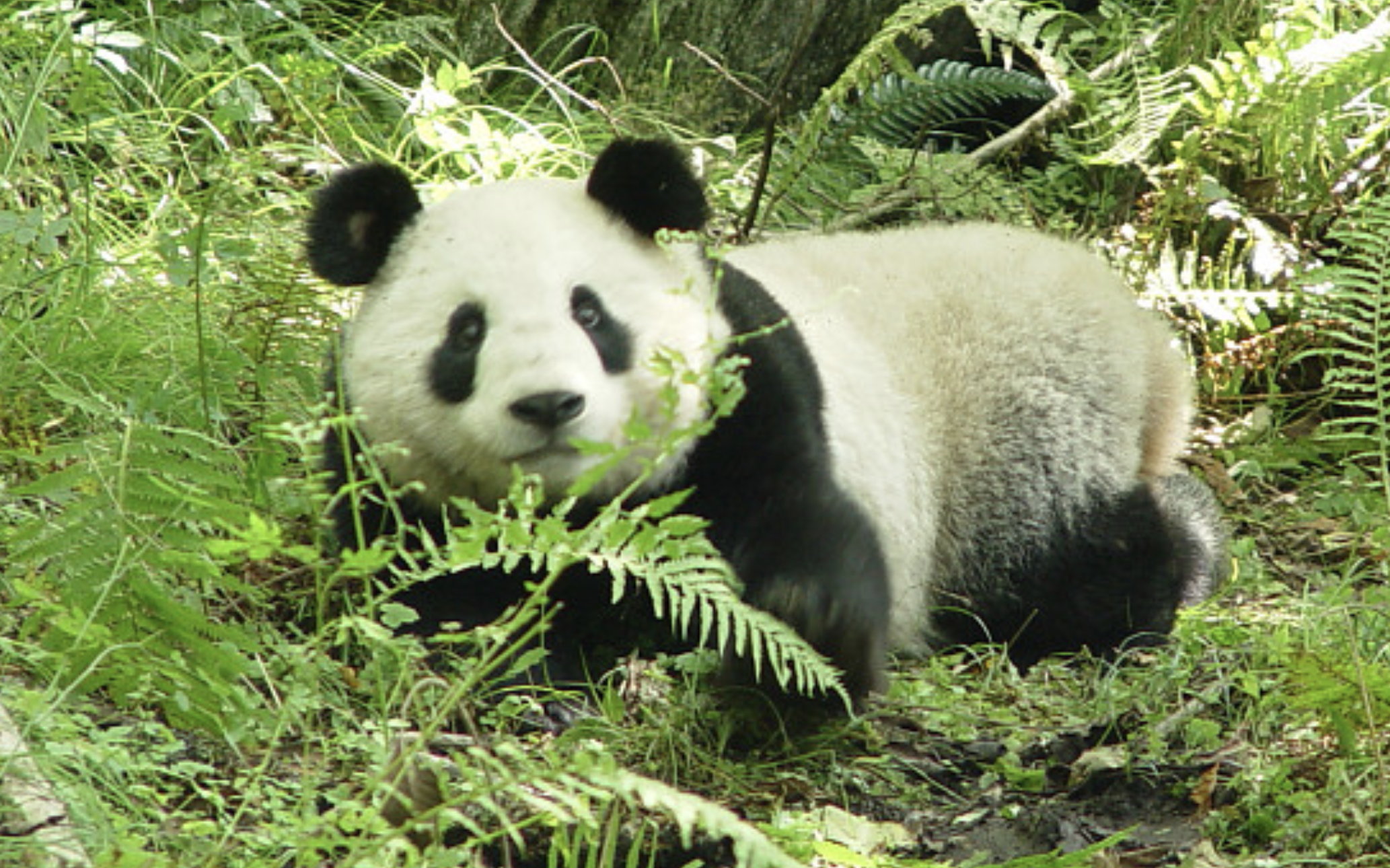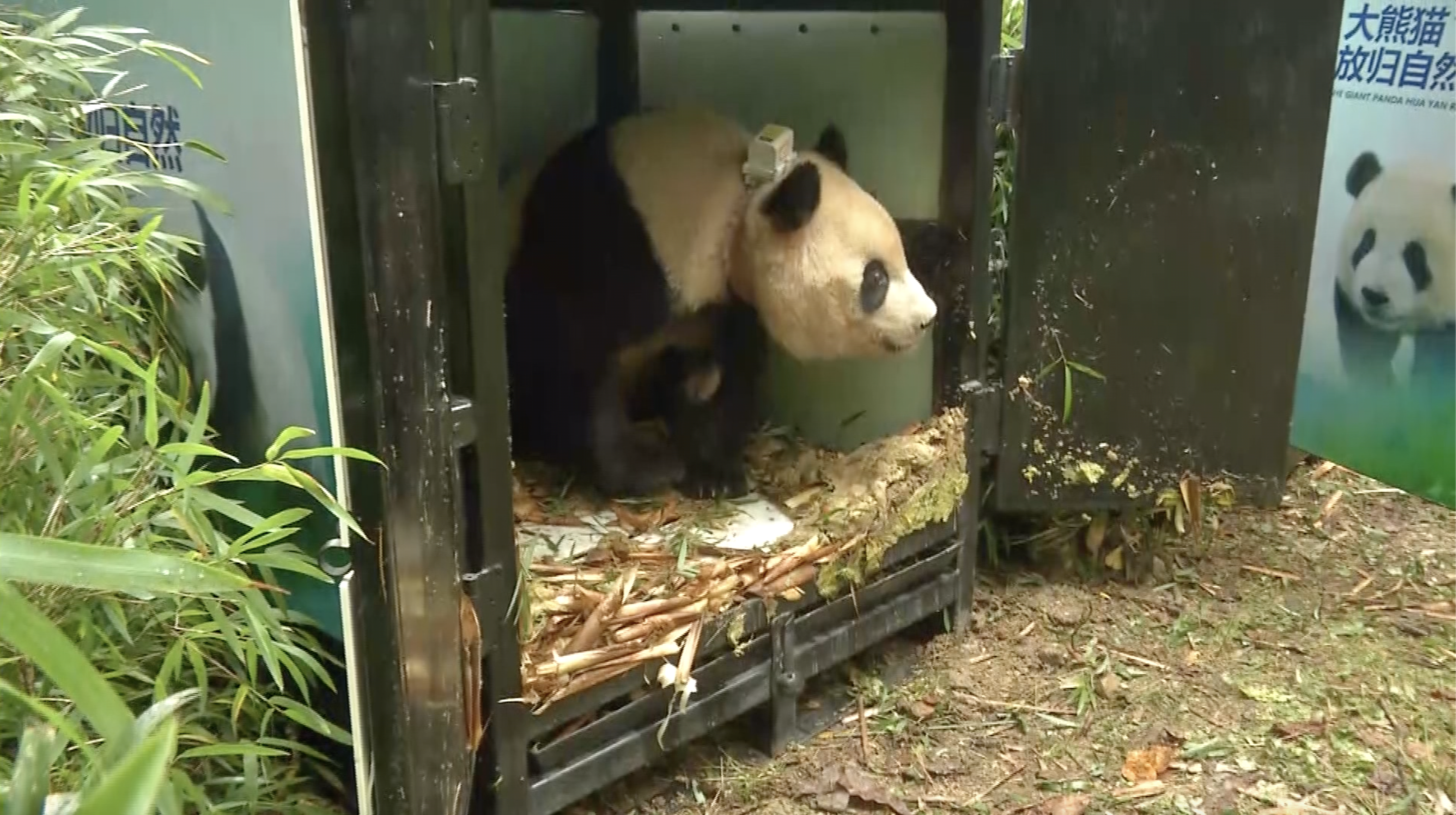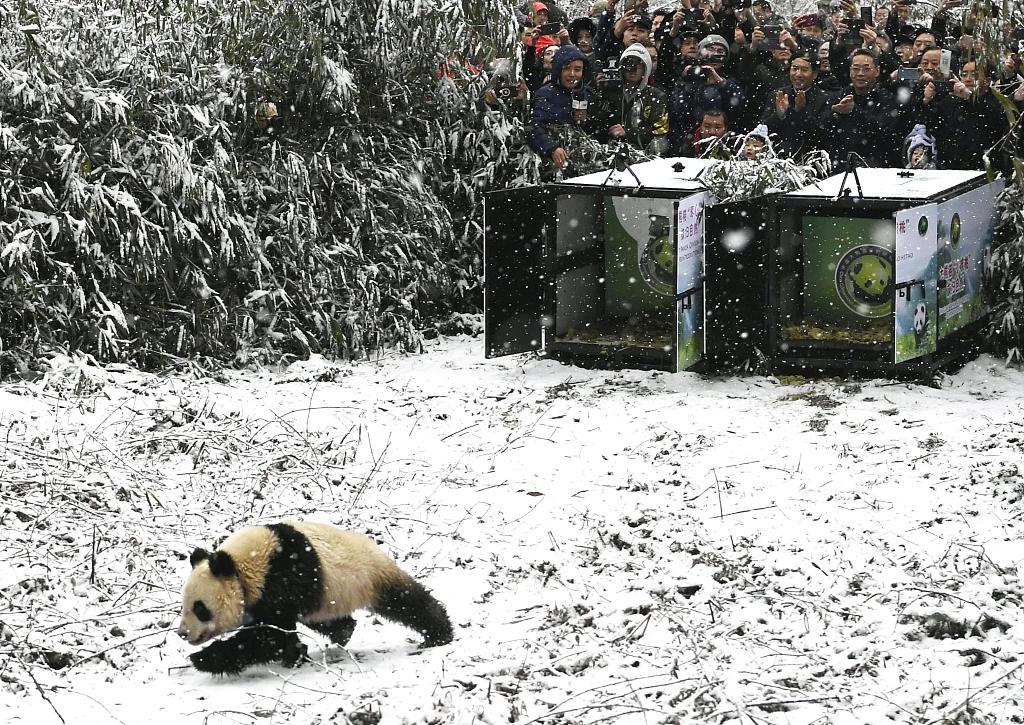01:35

Releasing captive giant pandas into the wild is a bold and controversial move because not all can survive. Out of 11 giant pandas being released by the China Research and Conservation Center for the Giant Panda so far, nine have managed to live in the wild.
The first captive panda released in 2006, Xiang Xiang, was a two-year-old boy. At this age, the baby panda was about to separate from its mother, which was an ideal time to be released into the wild to lead an independent life.
Everyone thought Xiang Xiang was a perfect candidate initially. Besides its age, Xiang Xiang was the strongest among all candidates and never got sick in captivity. It also has a twin brother, Fu Fu, enabling researchers to compare the two.

The first captive panda released in 2006, Xiang Xiang. /VCG
The first captive panda released in 2006, Xiang Xiang. /VCG
In the first half-year, everything went fine. Near the end of 2016, Xiang Xiang was found injured and sent back to the base for treatment. Researchers released it back to the wild after Xiang Xiang recovered. They didn't know that the next time they saw Xiang Xiang was its dead body.
Xiang Xiang died during fights with other wild pandas for food and territory. The first failure didn't stop the center from finding ways to help captive giant pandas survive in the wild. Rather, the center adjusted its method.
Considering that captive giant pandas tend to have a weaker ability to fight and defense than wild pandas, the center chose the site with a low population density of wild pandas to release. The Liziping National Nature Reserve in southwest China's Sichuan Province came to people's sight.

In 2016, Zhang Meng was released into the wild at Liziping National Nature Reserve in southwest China's Sichuan Province. /CCTV
In 2016, Zhang Meng was released into the wild at Liziping National Nature Reserve in southwest China's Sichuan Province. /CCTV
The wild panda population at the Xiaoxiang Range where the reserve is located is less than 30, which needs more pandas to make the group self-sustained. Since 2009, the reserve has taken the job of panda release. Nine out of 11 captive giant pandas were released here.
Apart from that, most giant pandas being released after Xiang Xiang are female, which can be better accepted by wild pandas than the male.
Before the release, the captive giant pandas need to receive more survival training together with their mothers at Wolong National Nature Reserve in Sichuan. They learn from basic walking and climbing trees to fight and defense skills and identify and escape enemies like leopards.

In 2018, Xiao Hetao and Qin Xin were released into the wild at Longxi-Hongkou National Nature Reserve in southwest China's Sichuan Province. /VCG
In 2018, Xiao Hetao and Qin Xin were released into the wild at Longxi-Hongkou National Nature Reserve in southwest China's Sichuan Province. /VCG
After those training and final physical examinations, captive pandas are well-prepared to explore the wild world. In 2020, three giant pandas will be released to Guanshan National Nature Reserve in east China's Jiangxi Province. This is the first time pandas are released outside their hometown, Sichuan Province.
Throughout history, giant pandas were once distributed in 17 provinces, cities, and autonomous regions in China. Maybe one day, we can see them roaming in the wild in more places.
About "Lost then Found" series:
Many species on Earth went extinct because of environmental change, evolutionary problems, habitat loss, or humans. The disappearance of species from Earth is ongoing, but some species are lucky to survive, thanks to humans' conservation efforts. In this series, CGTN will guide you through the journey of saving these creatures from extinction.
For more:
From 8 to 600: A long journey of breeding giant pandas
(Cover image designed by CGTN's Li Yueyun.)
(If you want to contribute and have specific expertise, please contact us at nature@cgtn.com.)